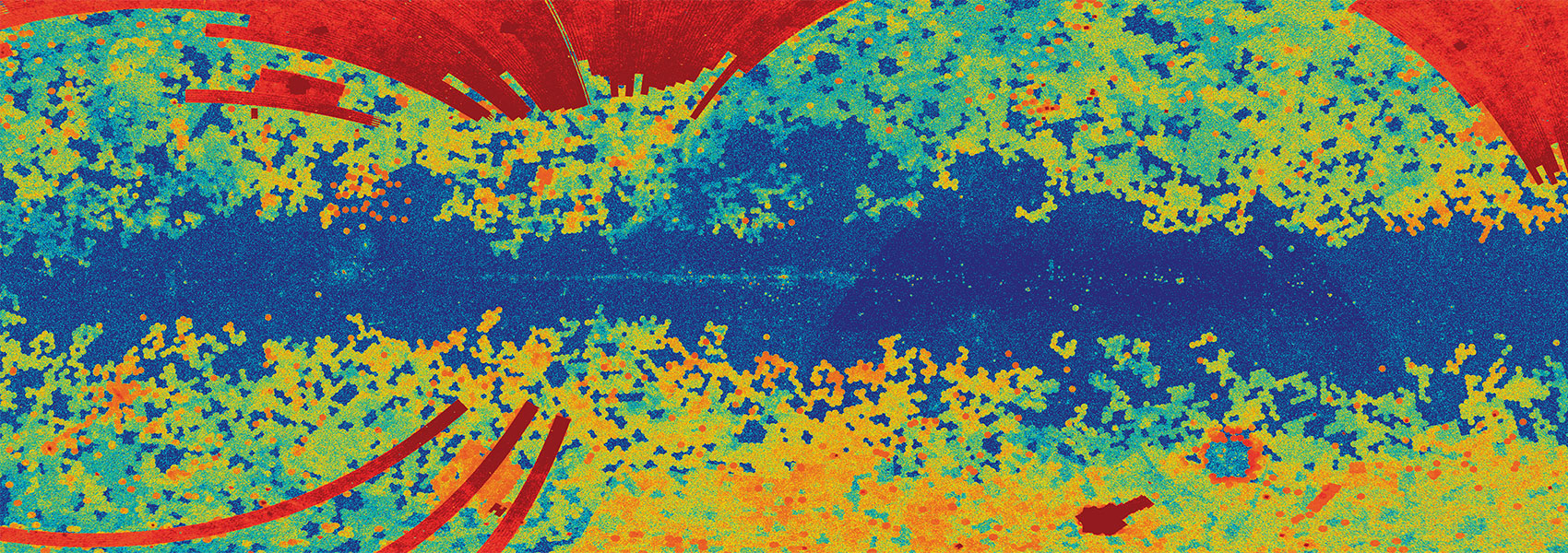
Robust constraints on dark energy and gravity from galaxy clustering data
July 2012 • 2012MNRAS.423.3631W
Abstract • Galaxy clustering data provide a powerful probe of dark energy. We examine how the constraints on the scaled expansion history of the Universe, xh(z) =H(z)s (with s denoting the sound horizon at the drag epoch), and the scaled angular diameter distance, xd(z) =DA(z)/s, depend on the methods used to analyse the galaxy clustering data. We find that using the observed galaxy power spectrum, Pobsg(k), xh(z) and xd(z) are measured more accurately and are significantly less correlated with each other, compared to using only the information from the baryon acoustic oscillations (BAO) in Pobsg(k). Using the {xh(z), xd(z)} from Pobsg(k) gives a Dark Energy Task Force (DETF) dark energy figure of merit (FoM) approximately a factor of 2 larger than using the {xh(z), xd(z)} from BAO only; this provides a robust conservative method to go beyond BAO only in extracting dark energy information from galaxy clustering data.
We find that a Stage IV galaxy redshift survey, with 0.7 < z < 2 over 15 000 (deg)2, can measure ? with high precision [where fg(z) and G(z) are the linear growth rate and factor of large-scale structure, respectively, and ? is the dimensionless normalization of Pobsg(k)], when redshift-space distortion information is included. The measurement of ? provides a powerful test of gravity, and significantly boosts the dark energy FoM when general relativity is assumed.Links



